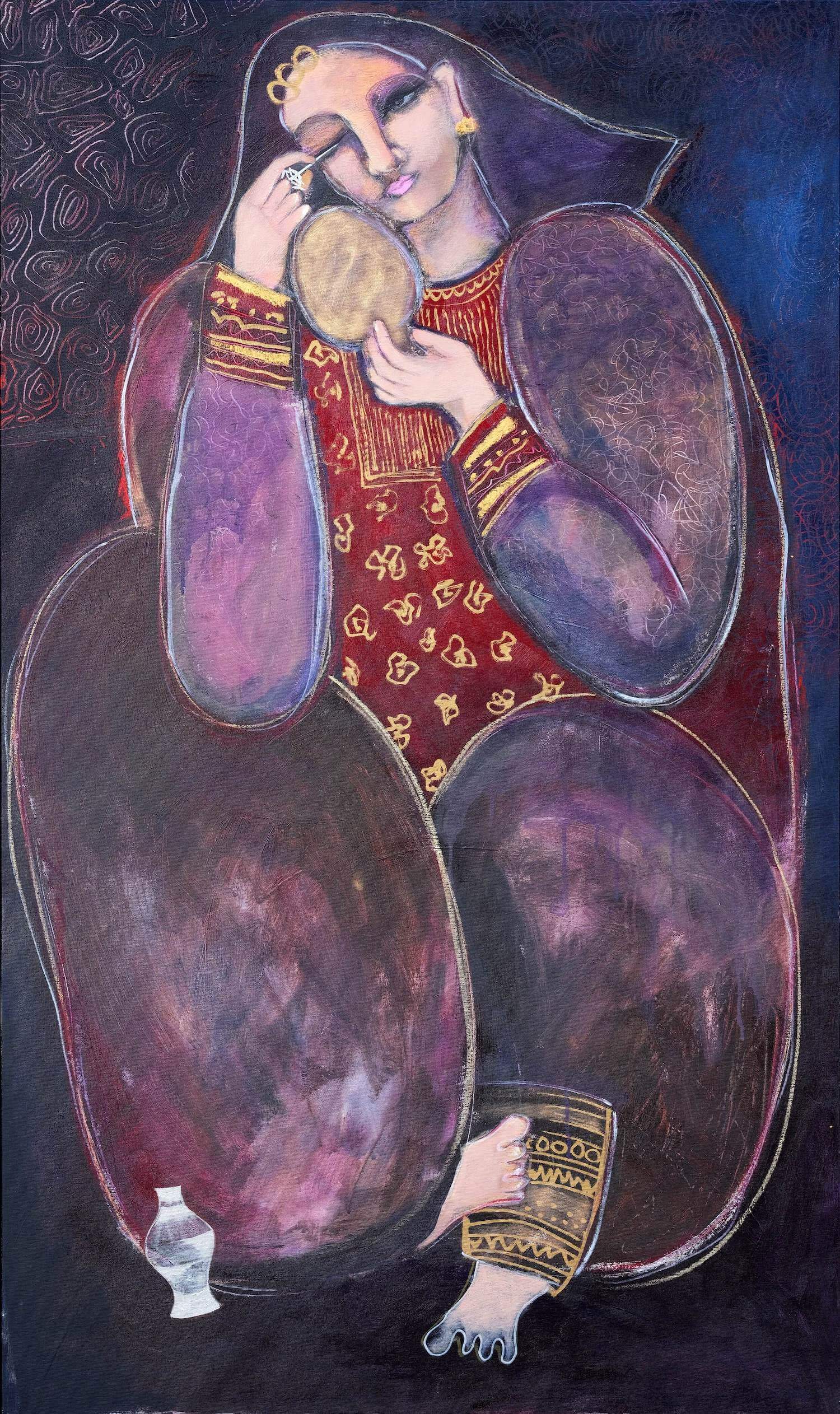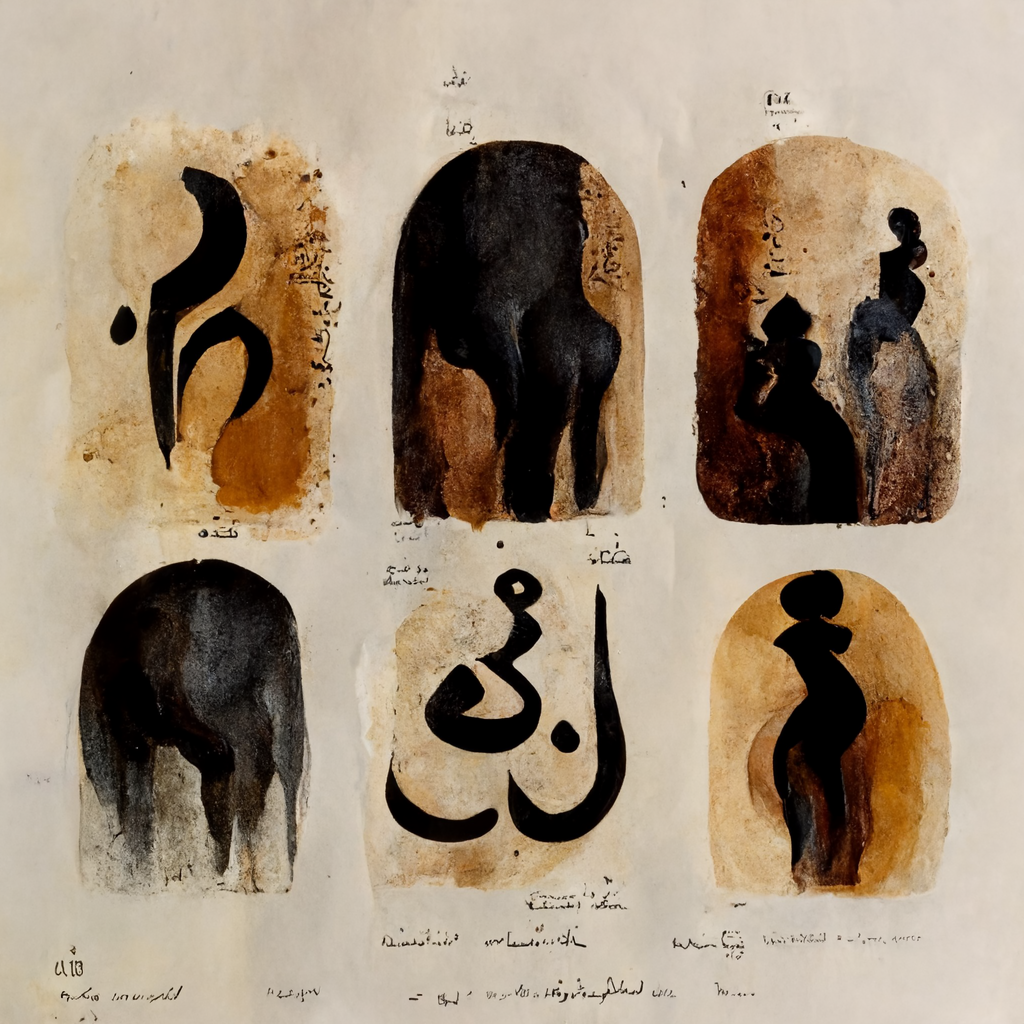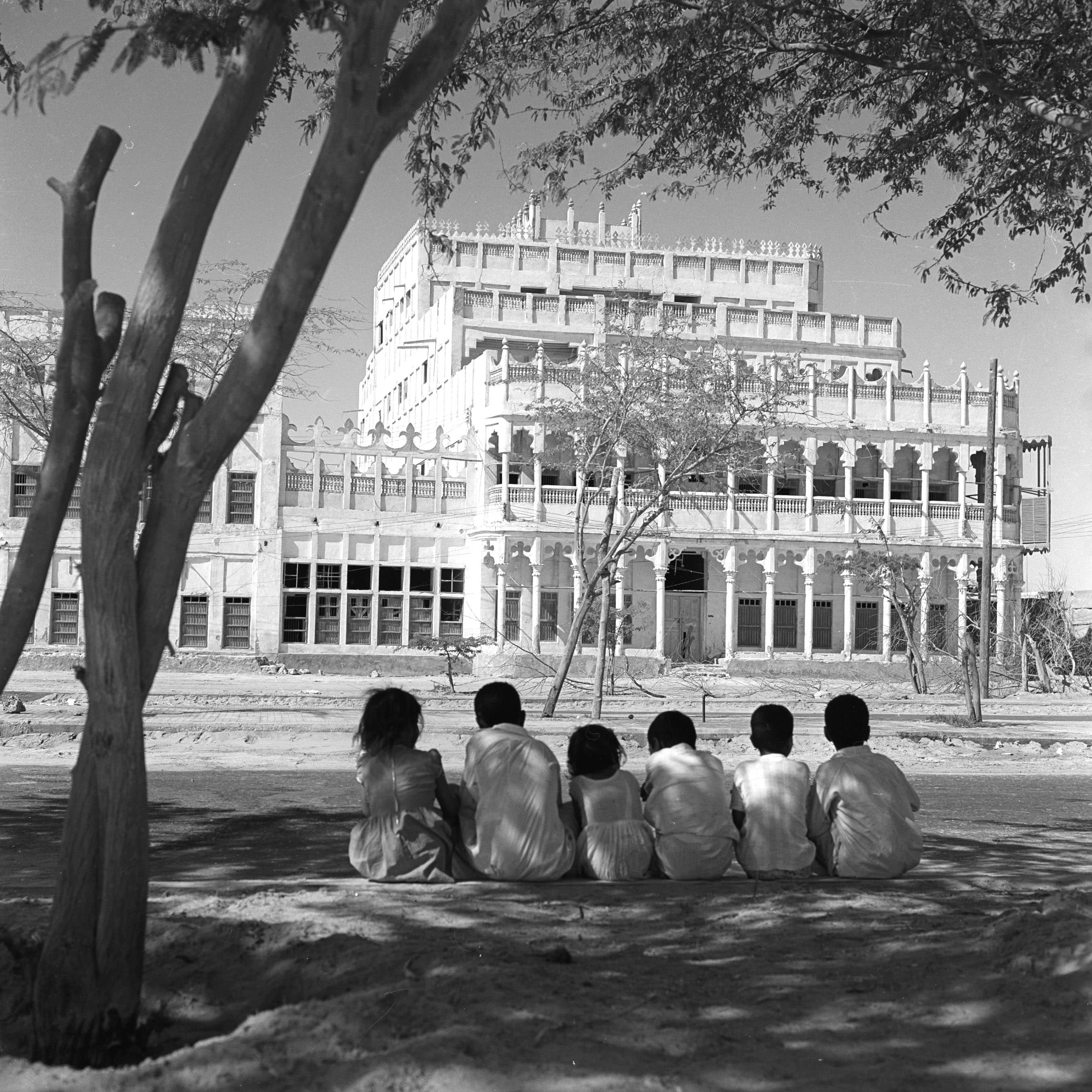Language and Identity
Nabataean alphabet tablet.
Language is not just a set of readable sounds that carry meaning, but rather a system that links a person to their family, beliefs and wisdom. It is also a system that shapes the way we see the world and how we think about it. It bears our different histories, traditions and folklore. Without it, culture has no meaningful meaning. Therefore, language is our identity.
To further explore the relationship between language and identity, I had the honor to sit down with the famous historian, archaeologist, and professor of ancient Arabic writings , who was a former faculty member at King Saud University, and now a faculty member at Misr University for Science and Technology, a cultural advisor at the King Faisal Center for Research and Islamic Studies, and a collaborating advisor at the Royal Commission in Al Ula.
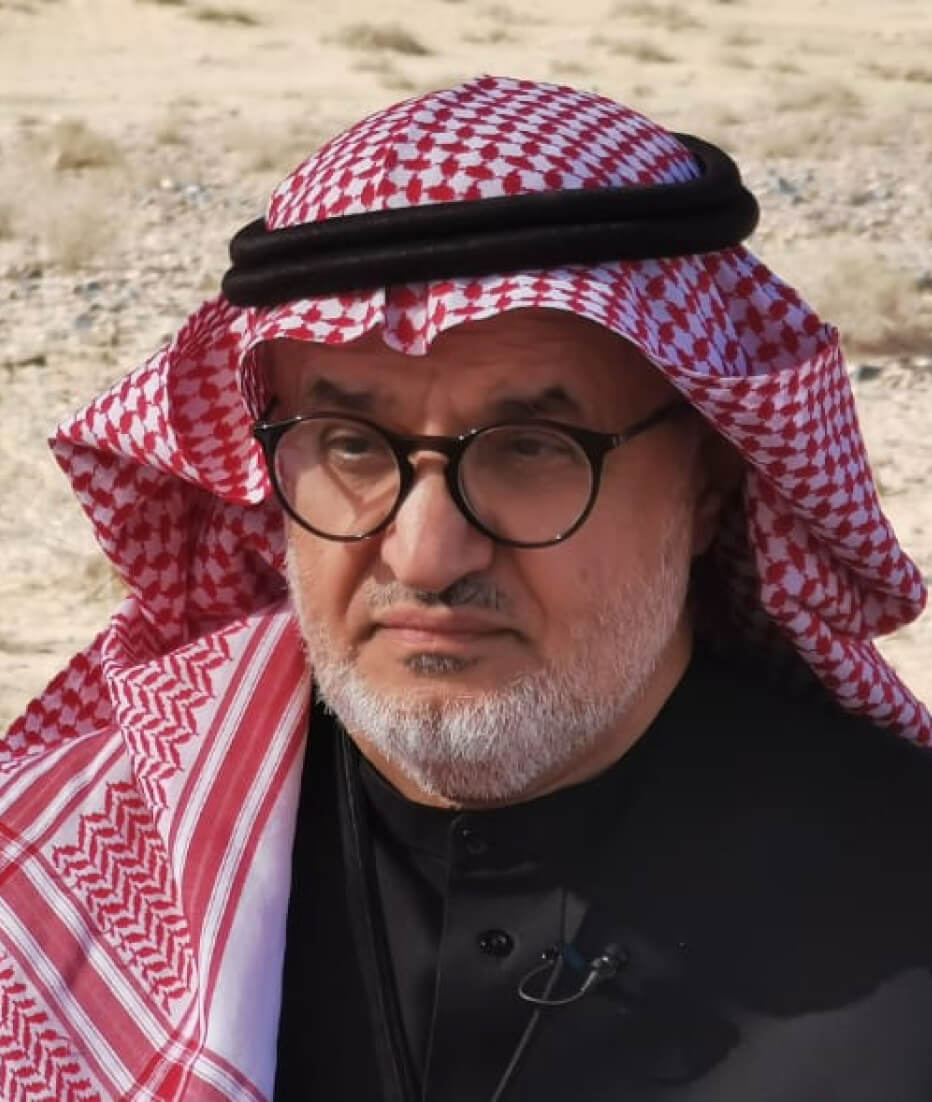
Dr. Suleiman Al Theeb.
Q1: Thank you, Doctor, for your time. For the sake of it, I will go directly to the questions: How did you enter the archeology major?
In fact, I did not mean to enter this major, and it was a coincidence. I applied to the university late, and was told that there is no place for me except in the Arabic language department or in the archeology department, so I chose archeology. Then it happened, and I fell in love with studying archeology.
Q2: What made you major in languages? Did you have other options?
Dr. Abdul Rahman Al Ansari - may God bless him - used to choose the teaching assistant and the student and set the specialization for him, because he wanted to form a team of all precise specializations to work with him. He chose the country to which the student would go, and he chose the appropriate supervisor, not the university. For example, he chose the best specialist in the world in the science of pottery, and the outstanding student in this matter was sent to this supervisor who was distinguished by his expertise and competence. He noticed that I did very well in ancient languages.
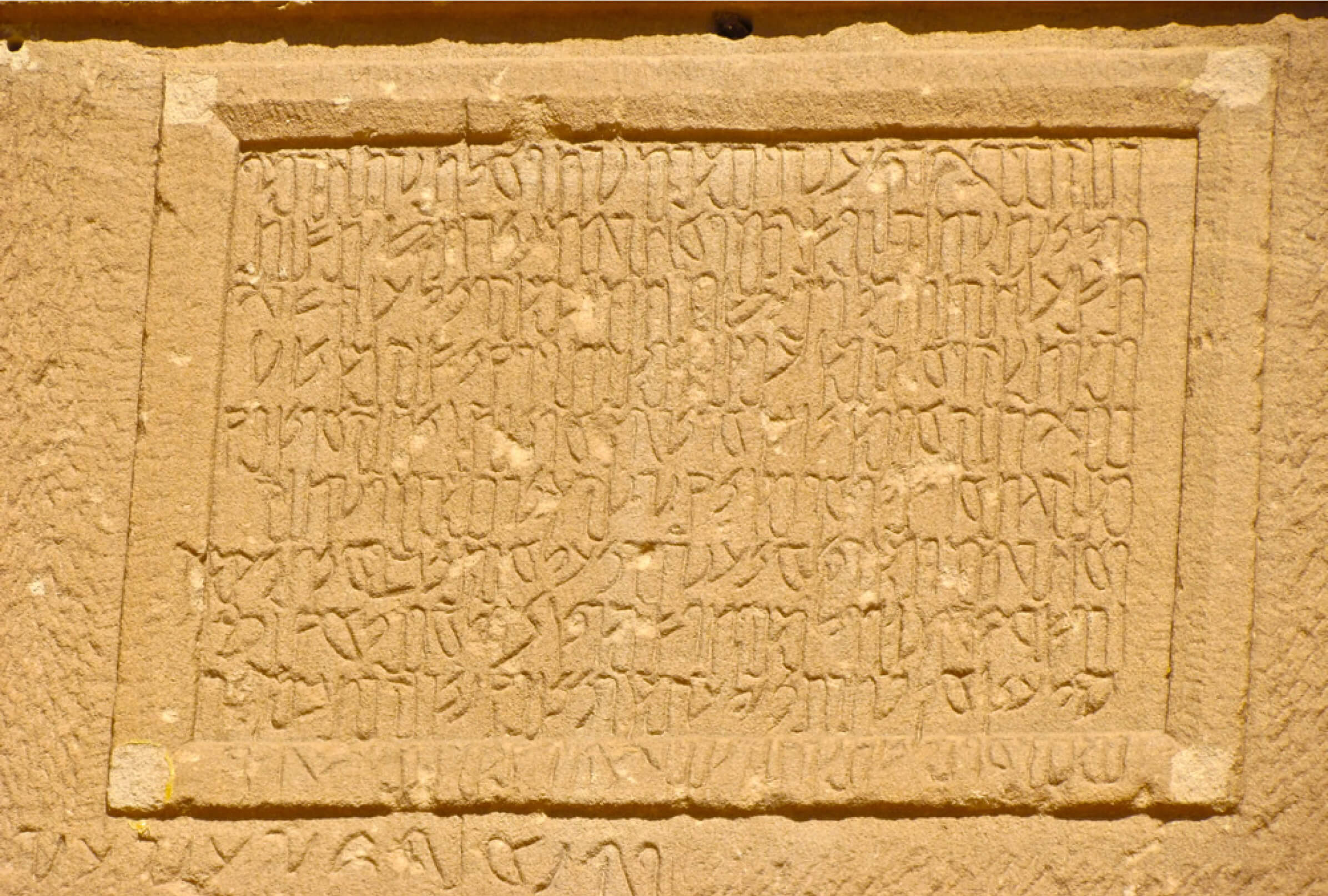
Nabatean-Inscription.
Q3: I think it's great to be able to read a language from the past, to know about its secret and its magic. Does it form a close connection between you and the past, since you are from a rare group that reads these ancient languages?
Let me tell you something about archeology. A specialist in reading texts is nicknamed "The Joker", because he can work in archeology as an excavator, write in history and civilization, and deal with inscriptions, writing history without inscriptions is difficult. While an archaeologist, like a surgeon, cannot deal with reading inscriptions, because his meticulous work is in excavation, research, or dealing with pottery.
The reader of the inscriptions feels that he is merging with society, and this is what I feel when I read those inscriptions about so and so, the daughter of so and so, who did this and said that; as if you were exchanging dialogue with someone who lived thousands or hundreds of years before you.
Of course, this does not mean that the excavator cannot read the past, but it is in the material matters that he finds in the place of excavation. Excavation in itself is like reading the lines of a book. For example, we write about a room like this and talk to these walls to get to know who lived in it before, the tools used, the fires that have occurred and how people left and returned to this or other area.
Therefore, I say: Yes, I feel that there is a close connection between me and the past, and I am a fan of antiquities.
Q4: A seemingly simple question, important to understand; What is the link between identity and language?
This question requires a reference to the past, to the origins of language. We believe that God Almighty created humans from Adam and Eve, and when they committed their disobedience in Paradise, God sent them down to Earth. If we believe in this, then, we believe that all of us as human beings have the same genes, because we belong to the same parents.
As time progressed, humanity began to gradually increase and multiply over hundreds of thousands of years, and two types of differences emerged: the first is biological; which is related to the human physical structure and his external appearance, and the second is social; which includes customs, traditions, religions and languages.
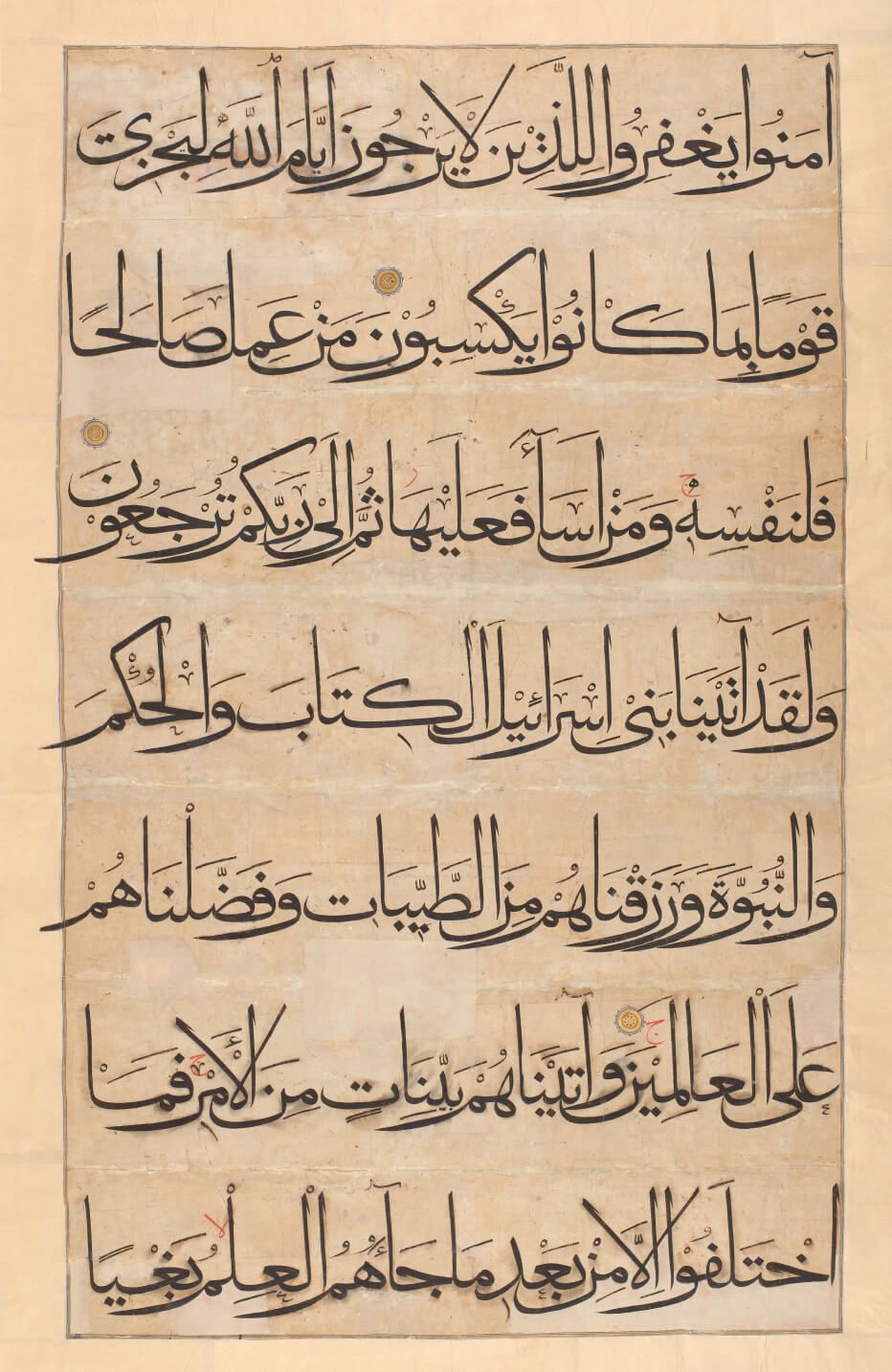
Classical Arabic - a page from the Holy Qur'an, Surah Al-Jathiyah 14-17.
Q5: What is the reason for this difference? Why did this difference occur over thousands of centuries?
Biological difference is simple to explain. For example: Corona and its mutations change from one form to another, just like the genes in humans that are affected by the type of food and the environment. On the Arabian Peninsula, the animals and trees are different from those of Asia and Africa. The concept and social beliefs differed between those who live in Africa and those who live in Asia or elsewhere. Some of them forbade eating animals or types of them, while other people have no objection to people eating each other. If a person eats the meat of a dog, monkey, crocodile or elephant, part of the genes in that animal are transmitted to the human being, which in turn is transmitted through marriage and inheritance to children and grandchildren. This is the biological difference that changed the human form, and this became the phenotypic identity.
As for social difference, i.e. the difference in customs and traditions adopted by society, the language it speaks, and the religion which is believed, the emergence of this social difference, not the biological, is the field of our dialogue, because it depends on the environment and nature.
When we study the social aspect, we find that social identity is based on two foundations: the first is power, domination, and human desire for possession. With time and with these features, we have human groups with different and many personalities emerged, and the group of people was motivated to take a leader for them and then assign themselves to this leader, while those ten kilometers away belong to another person. Hence the identity began by asking the person, who are you? He would say "I am with so and so" or someone else. An example of this is that the people of Assyria are called the Assyrians, or the people of Sheba are called Sabaeans.
Then the situation developed into the possession of the place, so instead of my identity belonging to this chief, it belongs to the place. When we say Akkadian, it refers to geographical locations. With this acquisition and with stability, the different classes of society appear, and then differences and identities appear - and from here we ask ourselves, how did languages appear?
Many may not know that the environment has a very big role in the development of the language. For example, the desert environment has a different language, and different vocabulary, than an area full of forests Why? Because it is devoid of rivers or dense trees, it is not present in its language as it is present in other languages that spread in the area of forests and dense bushes.
Rivers, for example, are not known to the ancient Arabs, but they are very well known to the Assyrians, and this affects their own languages. The difference in the environment leads to different letter exits as well. The simplest example of this phenomenon is “Shlonak-Shlonats-Shlonag” (meaning: how are you in Arabic). They all mean the same thing, but the pronunciation varies according to the environment.
Q6: But this is a dialect, not a language, right?
True, but language evolves into dialects, and dialects evolve into language. For example, German and English are of the same origin, and with the progression of time they split into two languages. Another example, when you read an article written in the Tunisian dialect, it is likely that you will not understand it, even though it was written in Arabic letters, and on the other hand theywill not understand what you write in your Qassim dialect.
But the Holy Quran, in fact, played a major role in preserving the Arabic language, because it combined Suleiman Al Theeb from Saudi Arabia and Suleiman Al-Theeb from Algeria, Ethiopia or Somalia. The Holy Quran preserved the purity of the language and its survival and prevented its disappearance in the future.
Q7: What distinguishes the Arabic language from other languages?
Most scholars believe that the Proto-Semitic language, the language from which the Semitic languages emerged, was primarily the Arabic language. We as Muslims see that the Arabic language is the language of the people of Paradise, while the Jews see that Hebrew is the language of the people of Paradise, and the Christians see that it is the Aramaic, and each of them has an argument for that.
But there is no doubt that God Almighty preferred and distinguished some languages over others, including the Arabic language, because in it the Holy Quran was revealed and God ended the messages of heaven with the last of His prophets in it. Aramaic was the language of Jesus, peace be upon him, and he wrote the New Testament in it. The Hebrew language was preferred by God with two advantages that he did not grant to any other language - God spoke it with Moses, peace be upon him, and then spoke it with the people of Moses; that is, he sent down the tablets from heaven to the people of Moses, peace be upon him, which were in the Hebrew language.
God also distinguished the ancient Egyptian language as well, where the Almighty said: (He said: “Do not be afraid, I am with you, I hear and see” Taha/46, after his command (Go to Pharaoh, he has overpowered) Taha/43, when Moses feared that they would be killed by Pharaoh, which indicates that Moses spoke hieroglyphs with Pharaoh.
In response to your question about the advantage of the Arabic language, it is the language with the most vocabulary. And if you look in the material, you will find a lot of vocabulary.For example, the camel has many names, as does the lion and others. The vocabulary is rich and if it is compared with other vocabulary in other languages, the difference is great.
The Arabic language is not as difficult as some people imagine, but the way we approach the language in education and dealing with it has led to the feeling that it is a difficult language. In fact, it is not difficult as long as the person learns the rules. They are like traffic regulations: when you know them, you pass the way easily and safely.
Q8: Were earlier dialects different from today's dialects?
There is a general rule: if there is no civil, cultural and technological development in society, the language it speaks will not develop, and it is this development that gives the dialect depth.
For example, the Nabataean language lasted for a short period of time, from the 2nd century BC to the 4th century AD. The lifespan of the language is relatively short, but if we take the Thamudic writing, whose vocabulary is mostly pure Arabic, close to 99% of the words, it differed only in some vocabulary with a civilized technical dimension that they adopted from the civilized nation contemporary to them. In their case, they had the Romans, so the word (Stratega) meaning ruler or general, it is not an Arabic word; it was taken by the Nabataeans and Nabbutha they defined it and it became Alastrtega.
The development of language comes from the development of society, and the richness of language is from the wealth of society and its cultural and civilizational heritage (social, industrial, or others). So language is a changing and renewable thing- as long as society evolves, the language and hence the dialect will change.
Q9: What is your perception of the Arabic language and the extent of its impact on our identity, and the impact of identity on language. As you know, globalization has made us as human beings very similar, even if our cultures differ, especially in terms of outward appearance.
This is what is called cultural hegemony, and in my opinion, in the current situation, the West is now at the forefront of thought. The reason is that it has provided humanity a lot in the previous period and, until now, it has dominated in every field from the aspects of economy, culture, civilization and industry. Dominance in the past used to take a lot of time to show influence and impact. For example: Egypt and Iraq, the two most powerful countries in pre-Islamic times, their influence on the Arabian Peninsula needed time, perhaps hundreds of years, for the Arab to be influenced by this civilized and cultural product, to take what it wanted and reject what it wanted. Today it is different, the effect is very fast, sometimes instant.
Impact in the Stone Ages took hundreds of years to bring about a change, it is like the running of a tortoise, but today it is like a rabbit jumping at great speed.
But the dominance of a particular culture does not mean the disappearance of another culture. Some languages sit in the recovery room, meaning the language has not died out yet, and it may take many years to revive it again. The Hebrew language is the best example of this, it was the language of religions, and after the Babylonian captivity, the language disappeared and was used only in temples - but today, the Hebrew language has been revived and many articles and scientific research are written in it.
I have conviction and certainty that the Arabic language will develop to keep pace with the times as it has developed throughout history - what was written in the Abbasid era is different from what was written in the Umayyad era, and both are different from the pre-Islamic era. As long as the nation is civilized and developed, and does not close to the past, the language will evolve.
Q10: A question that might be funny. Are the sounds of today the same as the sounds of yesterday?
Not all, the letter does not change, but the output does. And that's the environmental impact we talked about before.
Q11: Is it possible to say that Saudi society is sufficiently familiar with ancient languages and their influence on the Arabic language?
I don't think so, but there is a tendency among some amateur researchers. They publish a lot about antiquities and writings and they may be wrong sometimes, and I think the reason is that there is no coherent and integrated process for the dissemination of knowledge, academics like me have not done our part entrusted to us; we write materials in a way that does not reach the community.
Antiquities and others must be respected and appreciated without turning into an identity, in the sense of linking our present to our past in a healthy manner that does not constitute an obstacle to our present.
I think this is the best way to end this conversation. Thank you Doctor for your time and effort, and we hope to hear more from you soon.

Al Ula, January 3, 2020. Liyhan (Lehiani) Library Ancient Rock Inscriptions written in the Dadanitic language at Jabal Ikmah in Al Ula, Saudi Arabia.
